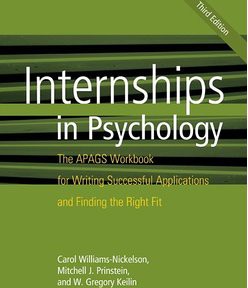I regularly receive office visits from students who are interested in forensic psychology as a career. Many who realize they want to continue their education in psychology past undergraduate studies quickly realize that it is not as simple as applying for college. Forensic psychology research is conducted in a number of disciplines, including clinical, cognitive, and social psychology, among others. A helpful resource in the application process is the Division 41 Guide to Graduate Programs in Forensic and Legal Psychology.
What does graduate school in clinical forensic psychology involve? I have had the opportunity to be involved in a number of research projects while in graduate school, including:
- Papers on stigmatizing effects of psychopathy and neuroscience evidence on jury decision-making
- The creation of an inconsistent responding scale for a psychopathy assessment measure
- A project on identifying malingering in ADHD assessment
Outside of research, I’ve had a number of valuable experiences within my department’s clinical practica. Some experiences I’ve had include:
- Working at the county community supervision office, conducting psychological and substance abuse evaluations for adults on probation
- Co-teaching a weekly anger management class and providing individual therapy services for anger management
- Conducting pre-employment psychological evaluations for local police department applicants
- Working for a year in crisis intervention at our county detention center, conducting psychodiagnostic interviews, providing referrals to the doctor to determine the need for psychiatric medication, and providing individual therapy and crisis management
Practica experiences have taught me valuable consultation skills, as I’ve had the opportunity to work with criminal justice and health professionals at a number of community placements. I’ve also been lucky to have a supportive department with faculty who encouraged me to pursue my interests in mental health reform and advocacy. As a result, I was able to attend the SPSSI Legislative Engagement Day on Capitol Hill and advocate for research funding for the social sciences.
I would encourage anyone interested in pursuing forensic psychology to consider what career they would like to pursue and what degree is required for that career. A Ph.D. in Clinical Psychology is not appropriate for everyone interested in the career, and there are a number of opportunities available at the Master’s level. If you are interested in clinical work, be sure to research the clinical practica offered by departments you apply to. I would also encourage students interested in a Ph.D. to pursue research experiences as early as they can. My research was for the most part unrelated to forensic psychology, but these experiences demonstrated to potential graduate programs that I had an interest in research.
However, the most important advice I can provide for individuals interested in this field is to find something you are passionate about and don’t settle for any graduate program. I do not believe that I would be as happy with my graduate school experience if I was conducting research that I was less interested in or if I did not feel as comfortable in the department.
Other Resources
- Division 41 – American Psychology-Law Society Careers in Psychology and Law
- American Psychology-Law Society
- How to Become a Forensic Psychologist
Author Bio
I am a third-year Ph.D. student in Clinical Psychology at Texas A&M University. My research includes interests in layperson perceptions of psychopathy and the implications of psychopathy and other mental health diagnoses in community and legal settings. In particular, I am interested in the possible stigmatizing effects of mental health evidence. Additionally, I am interested in emerging conceptualizations of psychopathy that place emphasis on neurobiological correlates of the disorder and the implications of this research for interventions with psychopathic individuals.
Email me!



 First, the GOOD NEWS! The
First, the GOOD NEWS! The  The Internship Workshop is a two-hour session geared towards working through the
The Internship Workshop is a two-hour session geared towards working through the